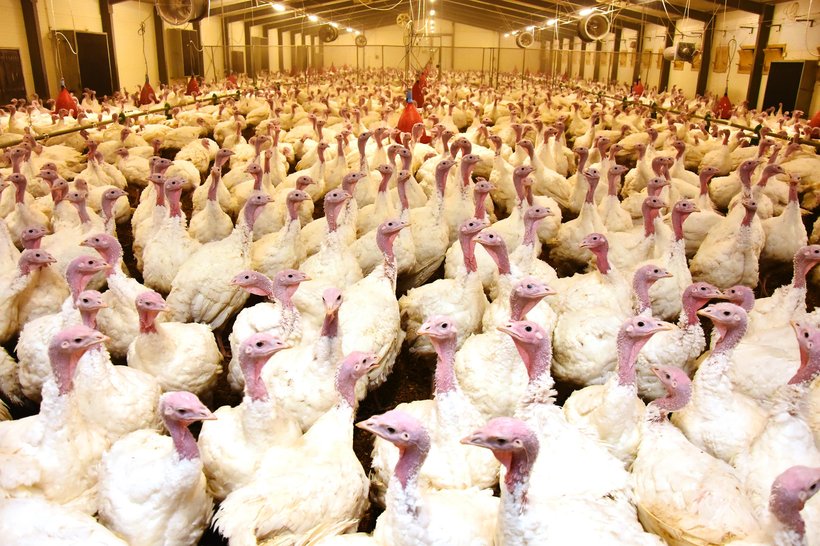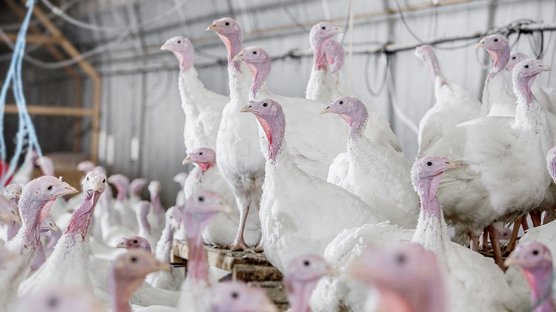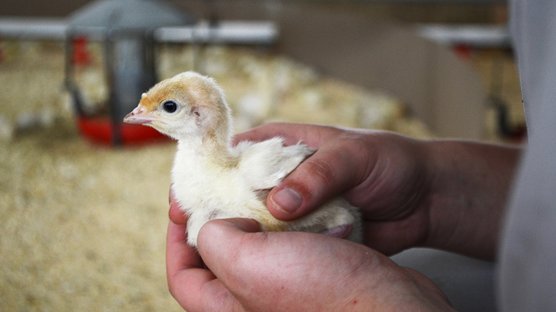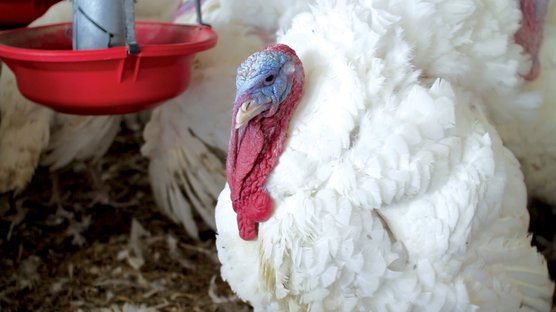
Published on April 14, 2020
Ask an Expert: How to manage Ammonia in your barn
Welcome to Ask an Expert, our article series where we answer questions submitted by you. This month, Alan asked about dealing with ammonia in his barn. Keep reading to learn more.
Dealing with ammonia in grow out turkey barn
There are many factors that can impact the level of ammonia in your barn. In order to deal with this issue, you should first get a base measurement of the ammonia level the birds are experiencing. As ammonia is produced in the litter it is more concentrated at bird level. Therefore you should obtain your measurements from this same level. Hybrid recommends growers target ammonia levels of less than 25ppm.
Secondly, try to identify the root cause. In general, factors affecting ammonia levels surround the environment in the barn, diet or health of the flock.
The environment includes evaluating areas such as relative humidity and litter quality and can be corrected through proper ventilation and airflow as well as litter management.
Relative humidity and excess moisture in the litter, whether from wet droppings, water spills or other, can all be improved through ventilation. Relative Humidity should be kept below 60%. Airflow is crucial to maintaining proper humidity levels in a barn and removing moisture from the litter and air. You can learn more about ventilation controls here.
Other key litter management techniques include:
- removal of all caked litter after each flock
- ventilate during downtime
- ventilate during pre-heating
- use of circulation fans
- application of litter treatments and
- maintain sufficient bedding depth to allow for proper moisture absorption
Diet can affect the consistency of droppings, which in turn can have an effect on the level of ammonia you are experiencing. Our consulting nutritionist, Dr. Dave Laurin, suggests the following to ensure good barn conditions:
- minimize excess crude protein in diets
- reduce calcium and phosphorus amounts added to commercial feeds
- proper formulation of sodium and chloride in feed is necessary
Finally, the health status of your flock can be a contributing factor. A great preventative management technique to ensure good health and droppings quality is to provide sanitized water to your flock. This helps to achieve good gut health and overall performance. You can learn more about water sanitation methods here.
If you fear a health-based issue is causing the high ammonia levels it is best to reach out to your local veterinarian to investigate further.
Thanks to everyone who sent in questions.
To ask a question for future Ask an Expert articles, click the button below.



